Blog
#2MinWritingTip – Writers Should Always Be Readers
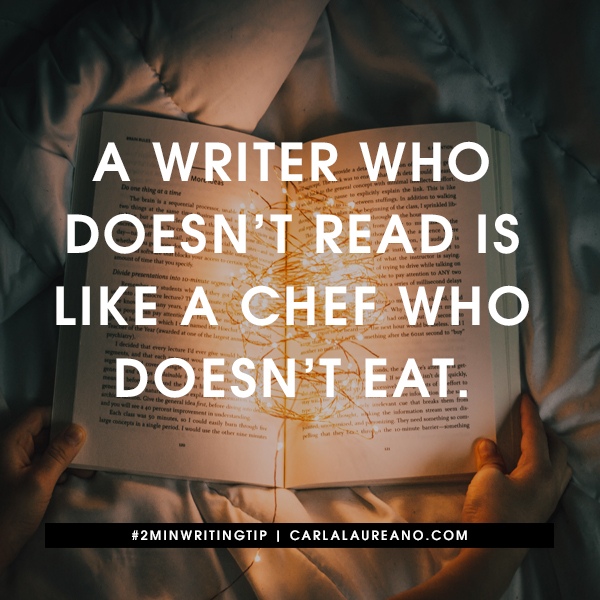
It seems to me that there’s been an increase lately in writers who don’t have time to read. I’m not talking about the working, published authors who temporarily have to put aside their fiction stack in order to preserve their voice or just make a deadline. I’m not even talking about the writer with the full-time job who has to limit her reading to vacations and the occasional weekend. I’m talking about the writer who doesn’t believe he or she needs to be a reader to be a good writer.
My reason for saying this is probably completely different than you might expect. A person can certainly learn to be a good writer by studying books and refining their own work. They might even get published. But I would be shocked if they found any long term success. Not because of a lack of talent, but because you can’t sell work to an audience you don’t understand.
Since I clearly like food, let me use an analogy: A writer who doesn’t read is like a chef who doesn’t eat.
[bctt tweet=”A writer who doesn’t read is like a chef who doesn’t eat. #2minwritingtip #amwriting”]
Readers, just like writers, are shaped by their tastes, and their tastes in books are as ever-changing as their tastes in fashion. In order to understand your readers’ expectations, you have to read what they read. You must read classics and New York Times bestsellers; the also-boughts beneath books you’ve written and books you wish you’d written. And gradually, without even realizing it, you begin to understand your readers’ worlds a bit better. You see the repeated elements that obviously resonate with them. You also see the tropes that are used–and overused–and will no longer seem fresh to them.
That’s not to say that the purpose of reading is to copy popular books or try to mold your writing into a particular style. Rather that, instead of writing from a bubble, an ivory tower, or <insert your favorite distance metaphor here>, you are writing to them as another reader who inhabits the same space as they do and has the same desire for a good story. And in that commonality with your reader is where you’ll find the ability to make a true connection.
#2MinBookReview – Nine Perfect Strangers by Liane Moriarty
Weird. Strange. Did I mention weird? But somehow, this was a really entertaining book. Watch to find out why Liane Moriarty’s new novel is as difficult to classify as it is enjoyable to read.
Tags: Liane Moriarty, Nine Perfect Strangers, thriller, women's fiction
Christian Fiction Scavenger Hunt Stop #7
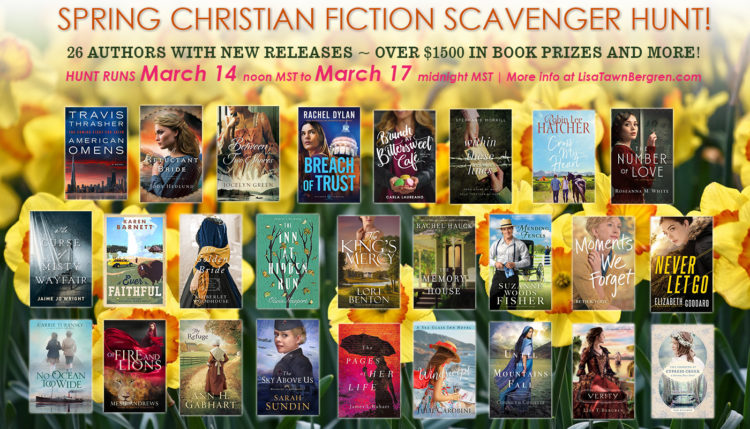
Welcome to the Christian Fiction Scavenger Hunt! If you’ve just discovered the hunt, be sure to start at Stop #1, and collect the clues through all 27 stops, in order, so you can enter to win one of our top 5 grand prizes!
- The hunt BEGINS on 3/14 at noon MST with Stop #1 at LisaTawnBergren.com.
- Hunt through our loop using Chrome or Firefox as your browser (not Explorer).
- There is NO RUSH to complete the hunt—you have all weekend (until Sunday, 3/17 at midnight MST)! So take your time, reading the unique posts along the way; our hope is that you discover new authors/new books and learn new things about them.
- Submit your entry for the grand prizes by collecting the CLUE on each author’s scavenger hunt post and submitting your answer in the Rafflecopter form at Stop #27. Many authors are offering additional prizes along the way!
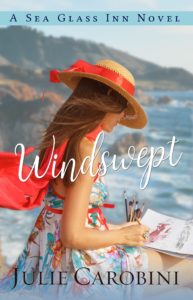 I’m so pleased to introduce my guest, Julie Carobini. I fell in love with Julie’s beach settings and realistic characters when I read Chocolate Beach a few years back, and now she’s back with another seaside romance that’s sure to be irresistible. Here’s a quick peek at Windswept, the third book in the Sea Glass Inn series: A beauty, a beast, and a prince in the making … At a crossroads, fashion designer Sophia moves into Sea Glass Inn with questions—and plenty of baggage. When she finds herself pursued by two very different men, will the wind stir up new love or sweep away all hope of a fairy tale ending?
I’m so pleased to introduce my guest, Julie Carobini. I fell in love with Julie’s beach settings and realistic characters when I read Chocolate Beach a few years back, and now she’s back with another seaside romance that’s sure to be irresistible. Here’s a quick peek at Windswept, the third book in the Sea Glass Inn series: A beauty, a beast, and a prince in the making … At a crossroads, fashion designer Sophia moves into Sea Glass Inn with questions—and plenty of baggage. When she finds herself pursued by two very different men, will the wind stir up new love or sweep away all hope of a fairy tale ending?
Enjoy this quick insight into Julie’s writing and cover design process!
How Fashion Designer Sophia’s Sketchpad Came Alive
by Julie Carobini
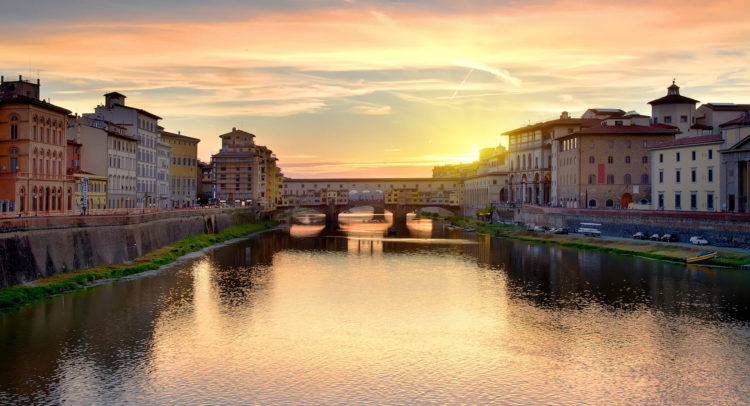
My family and I traveled to Italy a few years ago to meet my husband’s cousins. Our daughter had spent a year in Florence studying fashion, so we had many guides to show us the beauty of the Italian countryside and to tour us through museums housing magnificent works of art.
How could I not be inspired?
Soon after arriving home, I wrote a novel set partly in Italy (Runaway Tide). In that story, readers met the beautiful Sophia, a fashion designer, and I soon decided that she needed a book of her own. So, I gave her one in Windswept (Sea Glass Inn, book 3), which released this past January.
I know little about art and fashion personally (you’d be able to tell that by peeking at my doodles or by looking into my closet!), so I enlisted my daughter to produce a few sketches to inspire me. One in particular mesmerized me. It was of a woman in a red dress, her hair upswept, looking at the viewer.
The woman’s countenance helped me shape Sophia from the person I’d met briefly in that earlier story to the multi-layered woman whose story longed to be told.
If you look at the sketchpad on the cover of Windswept, you’ll see the woman in the red dress looking back at you. Oh, and here’s something I haven’t told anyone: The face of the male figure is deliberately hidden as a nod to the love triangle in Windswept. You’ll have to read the story to find out who wins Sophia’s heart.
Thank you for reading, and thank you, Carla, for hosting me today!
JULIE CAROBINI is an award-winning author of inspirational beach romances and cozy mysteries … with a twist. Julie lives in California with her family and loves all things coastal (except sharks). Visit her on Facebook: https://www.facebook.com/authorjuliecarobini, Instagram: https://www.instagram.com/beachyjewel/, and Twitter: https://twitter.com/juliecarobini
Here’s the Stop #7 Skinny:
You can order Julie’s book on Amazon, Barnes & Noble, iTunes or at your local bookstore!
Clue to Write Down: we learn
Link to Stop #8, the Next Stop on the Loop: Julie Carobini’s own site!
Before you go, enter to win a bonus prize here at my site! Two lucky winners will receive a hardcover copy of my new book, Brunch at Bittersweet Cafe.* The winners will be announced on March 18th and contacted via the email you used to register for the contest.
Carla’s Spring Scavenger Hunt Giveaway
*Giveaway open to entrants with US mailing addresses only. Thanks for your understanding!
Tags: Christian Fiction Scavenger Hunt, Julie Carobini, Windswept
Six Things Writers Wish Readers Understood
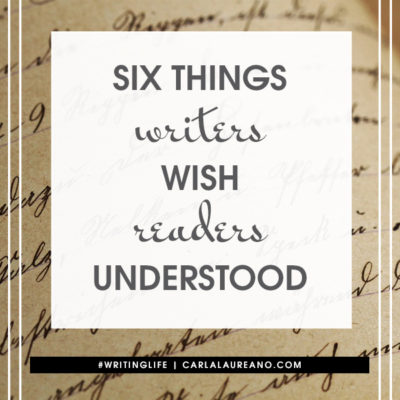
I get it. The writing life is one of those mysterious things that sounds glamorous from the outside. That impression is helped along by the scores of books and movies that either show writers as Le Cirque-dining, book-touring, Penthouse-owning bestsellers…or in the case of Stephen King’s The Shining, a desperate creature just one step short of madness. You’ll be happy to know that the latter depiction is almost never true. Unfortunately, neither is the former. (I know, I’m disappointed too.)
So I’ve compiled a list of things that writers wish readers understood about how their lives and publishing itself works.
- We have a lot less input/control than you think. Yes, traditionally published authors come up with the ideas and we write the books, but publishing is still a business, so there are a lot of other people whose opinions count. The questions of which book ideas we pursue, when the book is released, or how it’s marketed is usually not left up to us. If we’re lucky (and I am), our publishers consult us and ask our opinions. But the final decisions are largely made by committee at the publishing house, not by the author.
- We’re not purposely torturing you with our release dates (see #1). Okay, I have to say this, because I’ve gotten some mean posts on my Facebook page, accusing me of dragging out the release date on Under Scottish Stars to make more money. First, this doesn’t make any sense, because I would make much more money on a book I could actually sell right now. Second, I wrote the book years ago, so it kills me to have it done but not be able to share it. And third, there are some very good reasons why the book was delayed…but they weren’t my call. Publishing is a complicated business with lots of moving parts, many people, and multiple distribution channels. Release dates are planned to give the book the best chance at succeeding. It’s one of those cases where we have to defer to the experts.
- Most of us are not rich. In fact, many of us gave up jobs that were much more lucrative to do what we love. This is why I get hot under the collar when anyone accuses an author of being greedy because they price their books above $1.99. On average, most authors make about a buck a book on a $14.99 paperback or a $9.99 e-book. Most books sell less than 10,000 copies. As you can see, the math doesn’t usually work in our favor. $10,000 seems like a lot of money until you realize most authors only write a book every nine months to a year… and it’s hard to support yourself, let alone a family, on ten to fifteen grand.
- The best way you can ensure your favorite author continues writing is to BUY THEIR BOOKS! (see #3) Sadly, a lot of authors quit writing because they have to go back to “real jobs” with steady paychecks. Others no longer get contracts because their sales figures are too low. So if you love an author’s work, support them by preordering it, sharing it, buying it for gifts! Those numbers, especially the early numbers after release, mean a lot to us. It shows us that there’s an audience for our work, and more importantly, it shows our publishers there’s an audience for our work. NOTE: If you can’t afford to buy a book new… request that your library buy it! Library sales are our bread and butter because they buy multiple copies and expose our work to new readers. No author will ever shame you for using your public library instead of buying a copy. Promise.
- We’re just regular people who worked hard and/or got lucky to do what we love to do. (see #3-4) In contrast to the image of the rich, high-society New York socialite writer, most of us have spouses, families, and plenty of undignified responsibilities. A bestseller list has never saved anyone from having to clean cat puke from the carpet in the middle of the night (though I personally think there should be some tangible, chore-related benefit). Dirty dishes still pile up in the sink; our children still tune out our voices; the red sock still gets mixed in with a load of whites. We’re just regular people like our readers, which is a) why we like to write regular people with real problems and/or b) write fantastical stories where no one ever has to fold and put away laundry.
- Reader email is pretty much the best thing ever. Don’t ever think you’re bothering us by emailing how much you liked the book or to ask questions. If you didn’t pick up the book, we wouldn’t get to do what we love! Plus, when we put a new book out, it’s kind of like laying our hearts and souls bare for the world… we hold our breath while we wait to see how it’s going to be received. Just remember, every time you leave a good review, an author gets her wings. (Isn’t that how it goes?)
So what do you think? Are there any surprises on the list? What else would you want to know about what the life of a professional writer is really like?
Tags: writer myths
